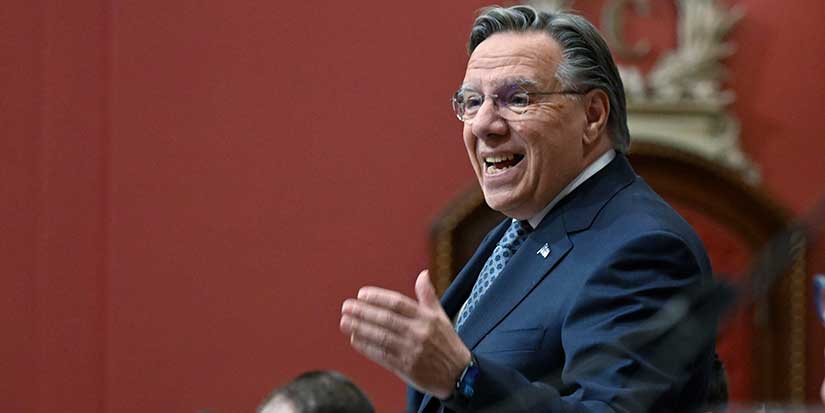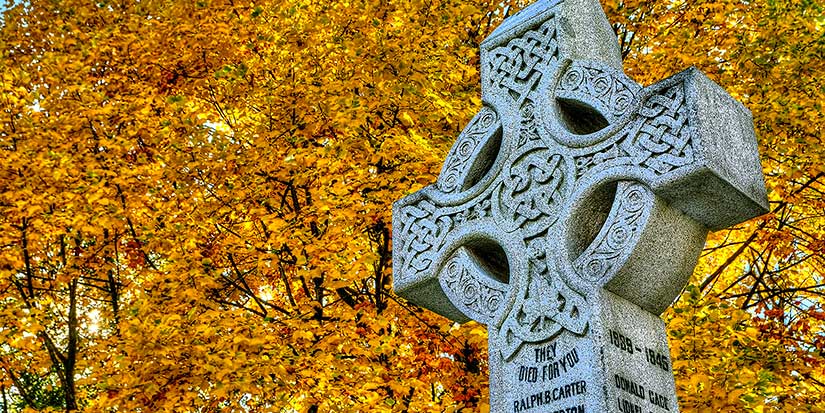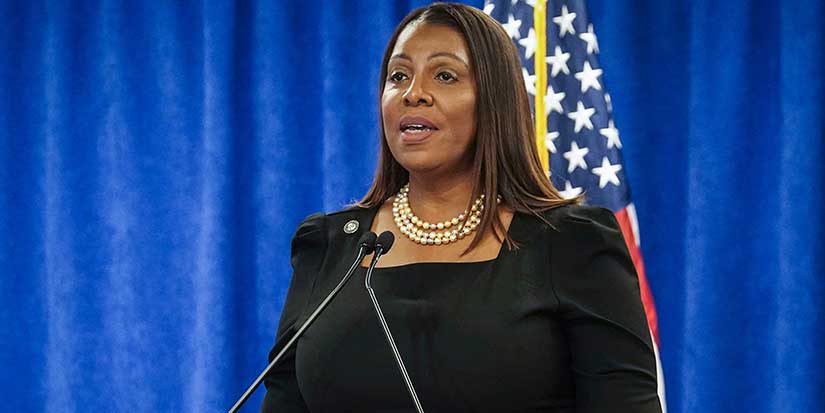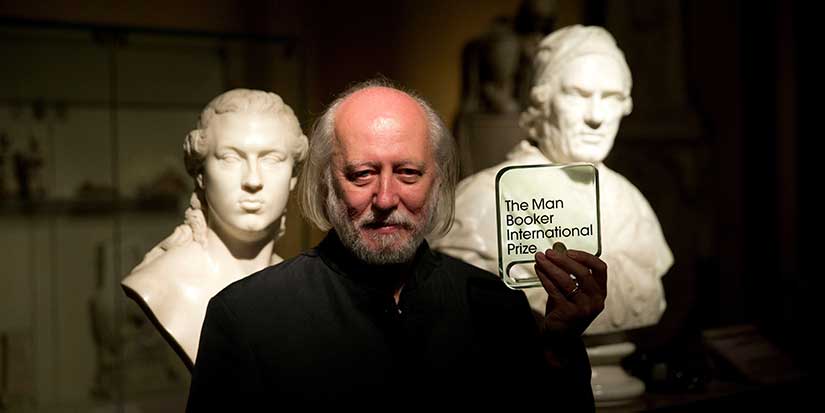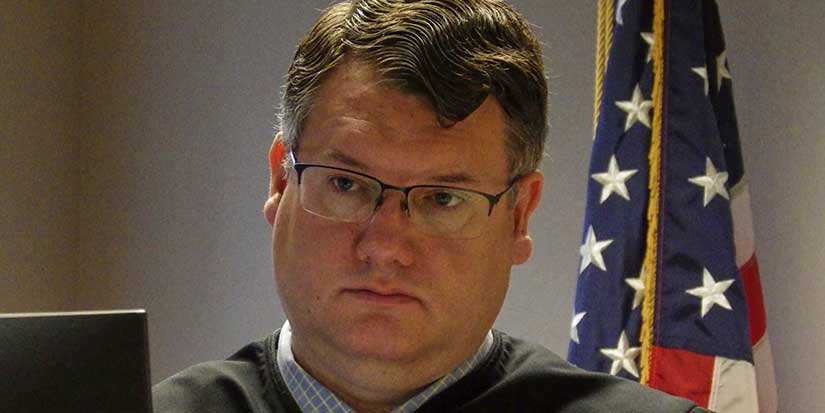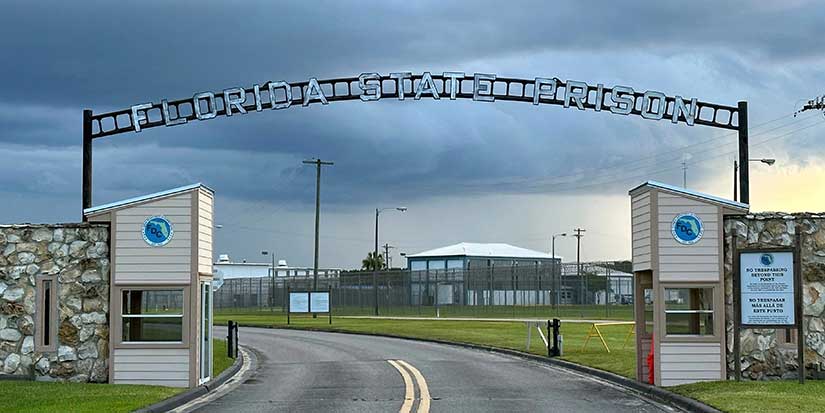National News
Quebec government tables draft constitution that will be 'law of all laws'
Published 10:42 PDT, Thu October 9, 2025
Last Updated: 2:43 PDT, Thu October 9, 2025
—
The Quebec government has tabled a draft constitution that would enshrine the right to abortion and assisted dying while boosting the province's autonomy within Canada.
Premier François Legault says the constitution bill, tabled Thursday in the national assembly, would protect Quebecers’ distinct identity and culture. The legislation is intended to defend what Legault's government deems to be the common values of Quebec, including secularism and equality between men and women.
"When we look at our history, our survival as a nation was improbable, but we are still here," Legault said Thursday morning in the legislature. "Quebec has chosen to remain in Canada, but it has also chosen to assert its distinct national character."
Legault has positioned his government as a champion of Quebec values and identity, and he characterized the constitution as the culmination of all the measures his government has taken to defend Quebec culture. Those include the province's secularism law, Bill 21, and its overhaul of the French-language law.
The draft constitution comes late in Legault's second mandate, as his government is trailing badly in the polls and at risk of a crushing defeat in the next election, scheduled for October 2026. Opposition parties have panned the bill as little more than a partisan exercise, and voted against its introduction in the provincial legislature on Thursday.
But Justice Minister Simon Jolin-Barrette said the constitution would be "the mirror and shield of the Quebec nation," and is long overdue. He pointed out that the idea of a provincial constitution has been touted for decades by prominent Quebecers of all political stripes. "We've been paralyzed for a long time," he told reporters in Quebec City.
The bill, which is the first new piece of legislation tabled since Legault prorogued the legislature last month, defines a set of "founding principles," including secularism, the equality of men and women, the right to abortion, and the status of French as the only common language of Quebec. It would enshrine access to medical assistance in dying in Quebec's Charter of human rights and freedoms.
The constitution bill also proposes measures meant to increase Quebec's autonomy. It would have the Quebec premier recommend candidates for Senate and Supreme Court seats – positions that are appointed by the prime minister.
"The government wants to give itself the power to submit a single nomination and thus force the hand of the Canadian government," said Daniel Turp, an emeritus professor in Université de Montréal’s law faculty. Turp previously proposed a project for a Quebec constitution when he was a member of the legislature for the Parti Québécois.
"So it's clear that there is probably potential for conflict here, because the government of Canada has never agreed to be bound by a request from Quebec."
The bill would also have the premier designate a candidate for lieutenant-governor, a position that would be renamed the "officer of Quebec" in a gesture symbolizing the province's desire to cut ties with the monarchy. Lieutenant-governors are appointed by the governor general on the recommendation of the prime minister.
A spokesperson for federal Justice Minister Sean Fraser declined to say whether Ottawa would accept those changes, saying only that the government is reviewing the bill. "Our government remains committed to working with Quebec and all provinces to strengthen the Canadian federation," Jeremy Bellefeuille said.
The new legislation also defends Quebec's use of the notwithstanding clause to shield legislation from constitutional challenges, saying the government has the right to invoke the clause "without any requirement to contextualize or justify the provision."
The declaration comes as the Supreme Court of Canada prepares to hear a landmark case on Quebec's Bill 21, in which the federal government is arguing for limits on how provincial governments can use the override clause.
In another response to the Bill 21 case, the constitution legislation would forbid organizations that get public funding, such as school boards, from using that money to pay for court challenges of laws deemed to protect "the fundamental characteristics of Quebec." On Thursday, Jolin-Barrette gave the example of the English Montreal School Board, one of the plaintiffs in the Supreme Court challenge of the secularism law.
In the future, he said, such legal challenges would have to be financed "in some other way than by using Quebecers' money."
The constitution bill would also modify the Quebec Charter to make equality between men and women take precedence over freedom of religion. Jolin-Barrette gave the example of a man refusing to be served by a woman for religious reasons. "That can't happen," he said.
On Thursday, Quebec Liberal Opposition Leader Marwah Rizqy accused the government of having failed to consult ahead of tabling the bill. "A Quebec constitution must imperatively be that of all Quebecers," she said in the provincial legislature. "It's not a project for a political party or a premier who dreams of going down in history."
Johanne Poirier, a professor of constitutional law at McGill University, said it makes sense for Quebec to enshrine its "fundamental rules" in a constitution. "But the process in which it was brought about is not inclusive," she said. "And if the parties are divided, the citizens are going to be divided, and the last thing you want with a constitution is to divide people."
– Maura Forrest, The Canadian Press
